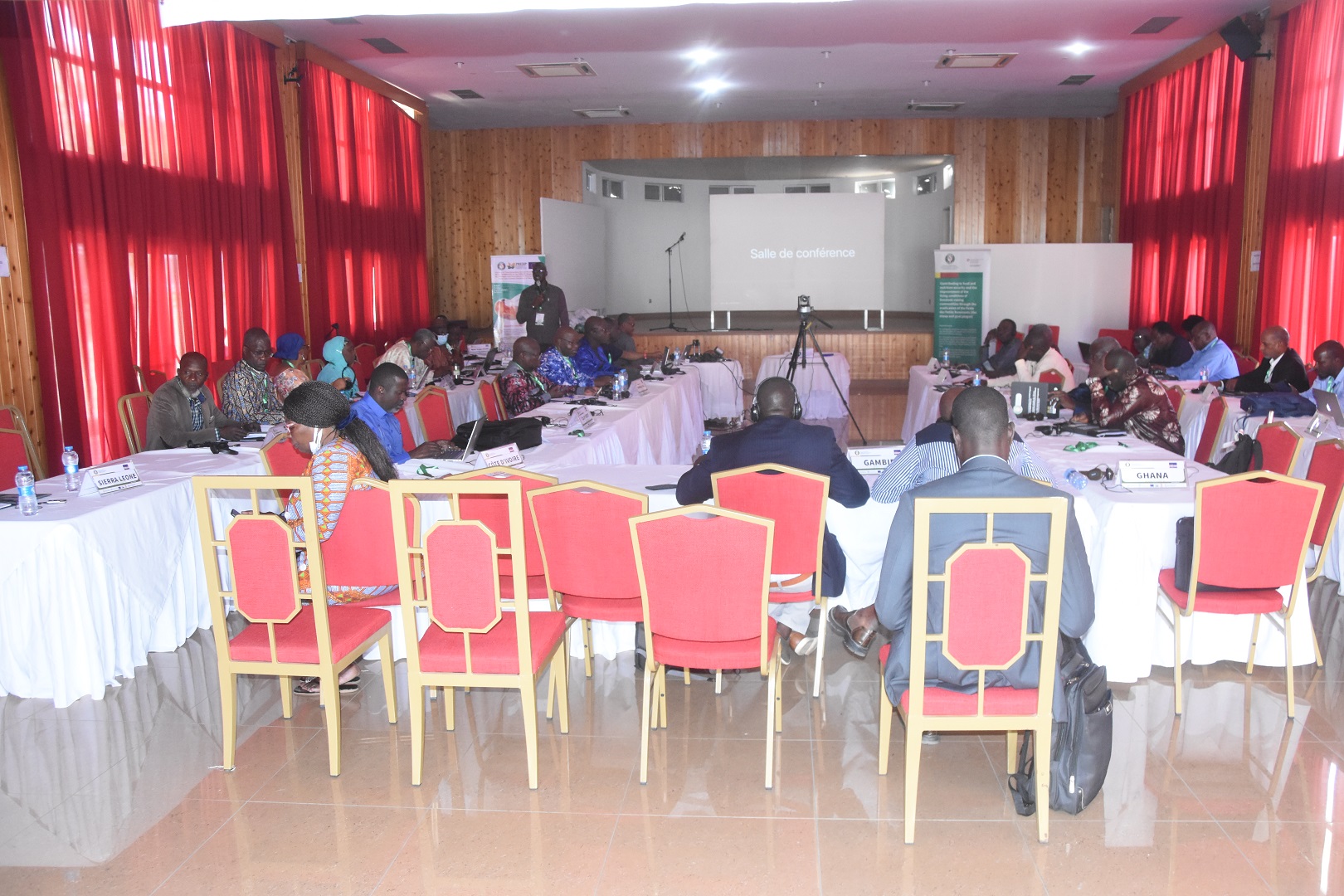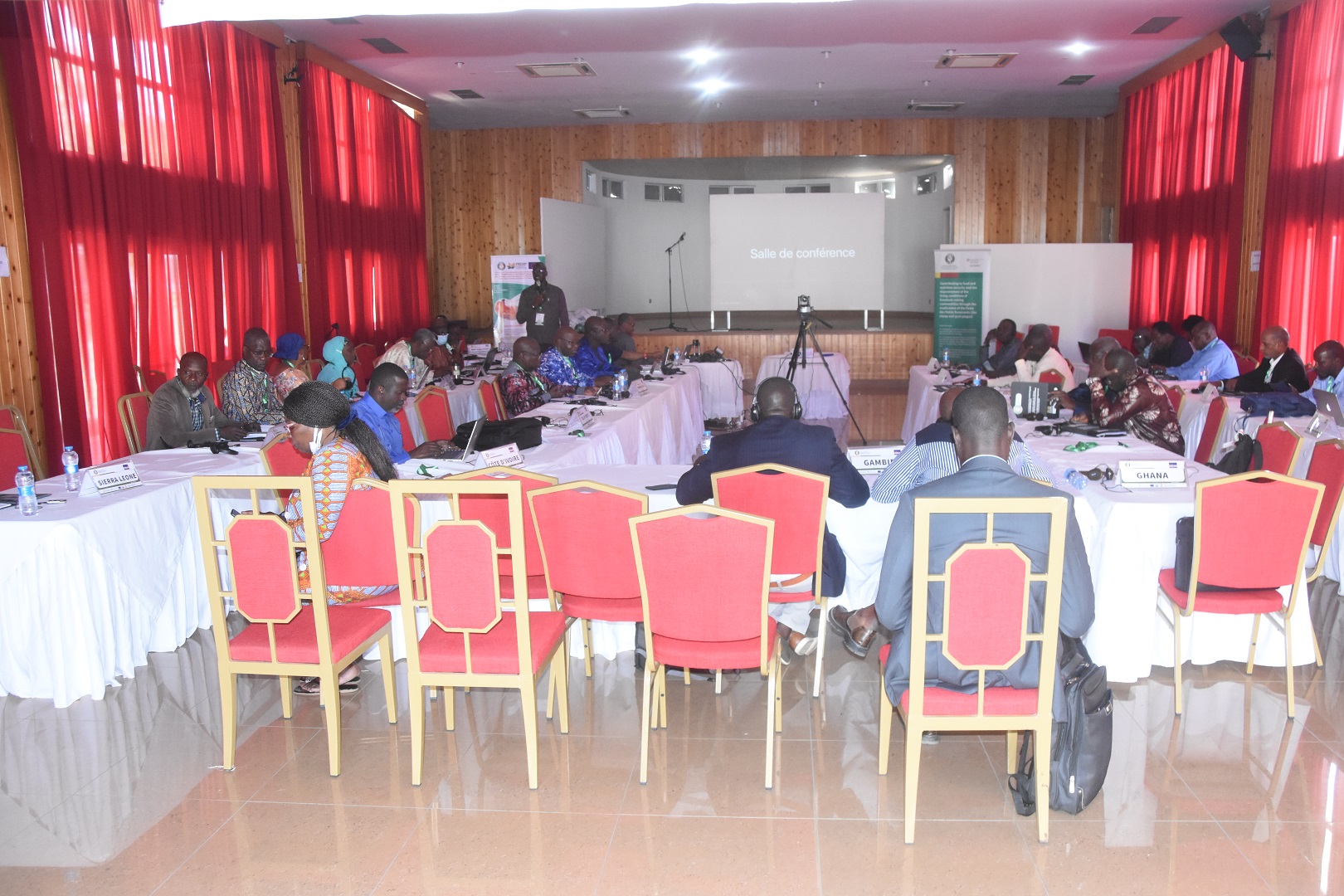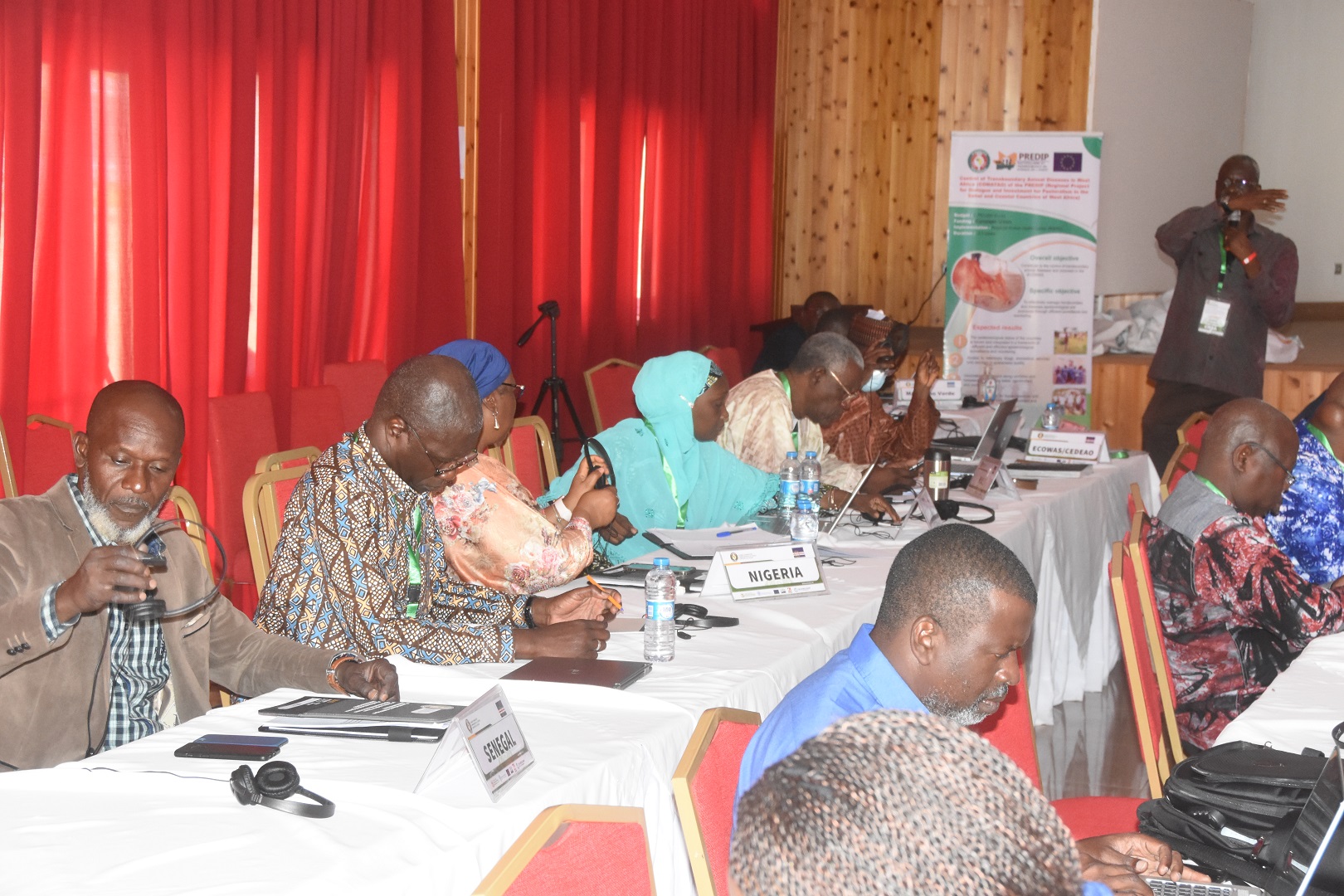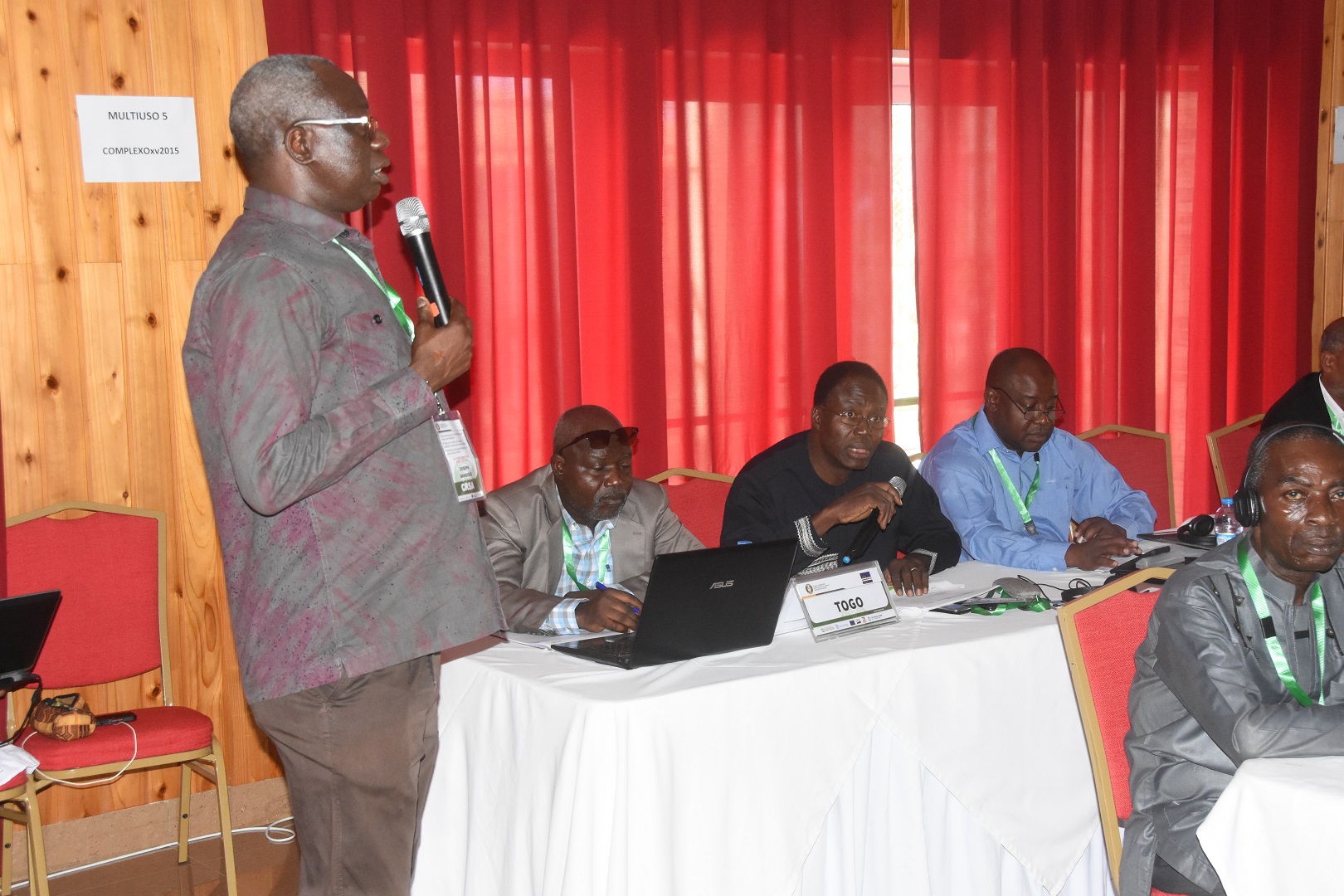Which Vaccination Strategy for eradicating Transboundary animal Diseases in West Africa by 2030?
24 Sep, 2022Ribeira Grande de Santiago, Cabo Verde, 24th September 2022
The parallel workshop of the Network of veterinary services and national veterinary colleges of the 8th Annual Meeting of ECOWAS Regional Animal Health Networks met from 19 to 21 September 2022 to fine tune and synchronise national vaccination strategies. The group work facilitated the definition of key indicators linked to global strategies for the eradication of priority animal diseases and zoonoses.
The three-day discussions allowed the Network experts to review (i) the national strategic plans for Peste des Petits Ruminants (PPR) and CBPP based on the status of indicators for the 2021/2022 campaign and preparations for the 2022/2023 campaign, (ii) vaccination efforts against rabies and foot-and-mouth disease (FMD) highlighting concerted and harmonised approaches (iii) the various vaccines used in the CBPP, PPR, rabies and FMD control and eradication campaigns, (iv) the description of the cold chain used in the field, i.e. the equipment or materials used to store, preserve and transport vaccines, and (v) the strategy for mobilising financial and material resources to support vaccination campaigns.
For each concern, the experts shared experiences on successes, major challenges and proposed solutions in each country, including coordinated solutions to be undertaken at the regional level.
The discussions led to some recommendations for the 2022/2023 campaign. This includes (i) harmonising and organising joint vaccination campaigns in the various countries, (ii) improving awareness among farmers on the marking of animals, (iii) supporting the financing and implementation of plans, (iv) taking a census of the herd, (v) coordinating the eradication of PPR at the regional level, (vi) extending the Regional Incident Coordination Group (ICG) to all diseases, (vii) setting-up the College of Presidents of the veterinary orders of ECOWAS countries and (viii) setting-up a regional emergency stock of vaccines and reagents.
The resulting Action Plan highlights the planned activities, the expected results, the implementation strategy, the Veterinary Services Directorate responsible for the implementation of the activity, the potential source of funding, the timeframe for implementation and the institution responsible for monitoring the implementation of the activity.
The Regional Veterinary Committee (RVC) set up by the ECOWAS Commission in 2010 complements the regional institutional framework which includes the Veterinary Laboratory Network (RESOLAB-Laboratory Network) and the Epidemiosurveillance Network (RESEPI), thus enabling the ECOWAS Commission, through RAHC, to coordinate animal health initiatives in the region
To recall, given the negative impact of the diseases identified as priorities, eradication or control strategies have been developed at the global level, thus committing countries to make efforts to combat them, under the aegis of FAO, WHO and WAHO when as zoonoses are concerned. In 2015, the Global Programme for the Eradication of PPR by 2030 was launched. According to FAO, the monitoring of the progress of infected countries towards step 4 (final step of eradication) shows that in 2021, only 15% of countries were at step 3. Two countries indicated to be at stage 4, i.e. the final step, whereas in 2015 no country was at step 4. Other global eradication commitments include “zero cases by 2030” for rabies, control of foot-and-mouth disease (FMD) and CBPP.





















